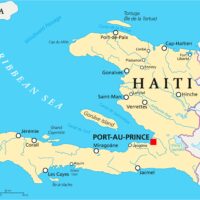Haitian Immigrants Have Temporary Protected Status: What That Means

Haitian immigrants in Springfield, Ohio, are prominent in the news right now. Unfortunately, their prominence is due to them being used as pawns in the current presidential campaign, and many ugly rumors are being spread about them. To read or hear some of the rhetoric, you would think that these migrants are in the country illegally and could swiftly be deported by executive action. Actually, these migrants are in the country lawfully under what is known as Temporary Protected Status (TPS). Learn more below about what TPS means to people suffering abroad or seeking safety in the U.S. If conditions in your country are forcing you to leave your home, contact Gladstein & Messinger, P.C. to explore TPS, asylum, or other options with a skilled and experienced New York immigration lawyer.
What Is Temporary Protected Status?
Temporary Protected Status (TPS) is a federal program that gives eligible foreign nationals the right to reside in the United States temporarily. Not every foreigner can claim TPS. First, the U.S. must assign the person’s home country the TPS designation. Typically, this happens after a natural disaster or political conflict has forced people out of their home country, leaving them desperate to find a safe place to reside.
TPS Eligibility
TPS has many requirements. First, you must either be a national of a designated country or a person without nationality whose last habitual residence was in a designated country. Presently, the countries designated for TPS are:
- Afghanistan
- Burma (Myanmar)
- Cameroon
- El Salvador
- Ethiopia
- Haiti
- Honduras
- Nepal
- Nicaragua
- Somalia
- South Sudan
- Sudan
- Syria
- Ukraine
- Venezuela
- Yemen
Another requirement is that you file for TPS during the applicable initial open registration period or re-registration period, or meet the criteria for a late initial filing while your country’s designation is being extended. Additionally, you must be continuously physically present and continuously residing in the U.S. throughout the applicable dates. Additionally, you could be excluded from TPS based on certain factors, such as:
- Being convicted in the U.S. of one felony or two misdemeanors
- Being found inadmissible under certain circumstances
- Being subject to a mandatory asylum bar
- Failing to register for TPS without good cause
TPS for Haiti
Haiti was most recently designated for TPS on August 4, 2024. This current designation will last through February 3, 2026. The initial registration period for individuals who do not currently have TPS is July 1, 2024, through Feb. 3, 2026, and the re-registration period for individuals who already have TPS is July 1, 2024, through August 30, 2024. You must show continuous physical presence in the United States since August 4, 2024, and continuous residence in the U.S. since June 3, 2024. Your ability to work in the U.S. via an Employment Authorization Document (EAD) is auto-extended through August 3, 2025.
Haiti was first designated for TPS in 2010 after suffering a 7.0 magnitude earthquake that devastated and destabilized the country. The TPS designation for Haiti was extended through 2017, when then-President Trump attempted to rescind the status for Haiti, El Salvador, Nicaragua, and Sudan. This effort was challenged in the federal courts in New York and California with varying degrees of success. Although the Ninth Circuit Court of Appeals in California ruled in favor of President Trump, paving the way for mass deportations, the current Biden administration rescinded the Trump terminations and has extended or redesignated TPS for Haiti and Sudan.
Contact Gladstein & Messinger in New York for Help With U.S. Immigration
For help with asylum, citizenship, family or employment visas, deportation defense, and other immigration legal needs, contact Gladstein & Messinger P.C. at 718-793-7800 or 800-339-0535 for advice and assistance from a skilled and experienced New York immigration attorney.

